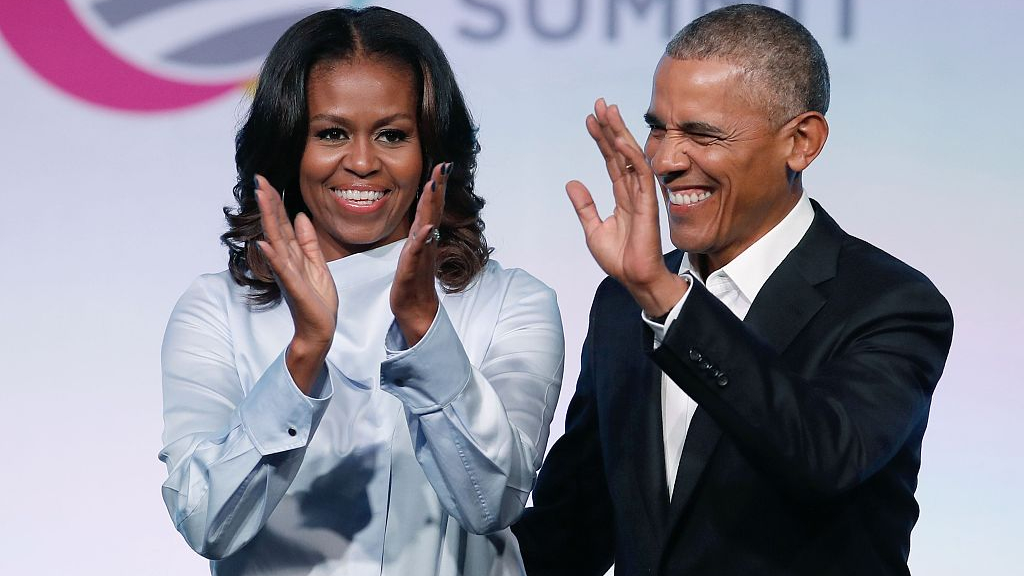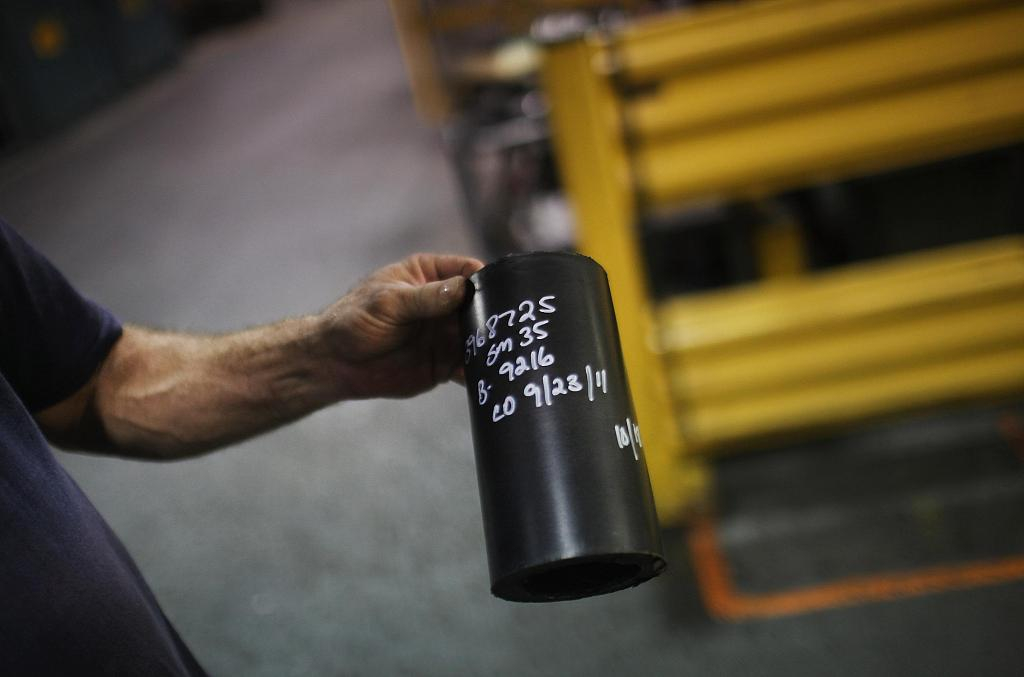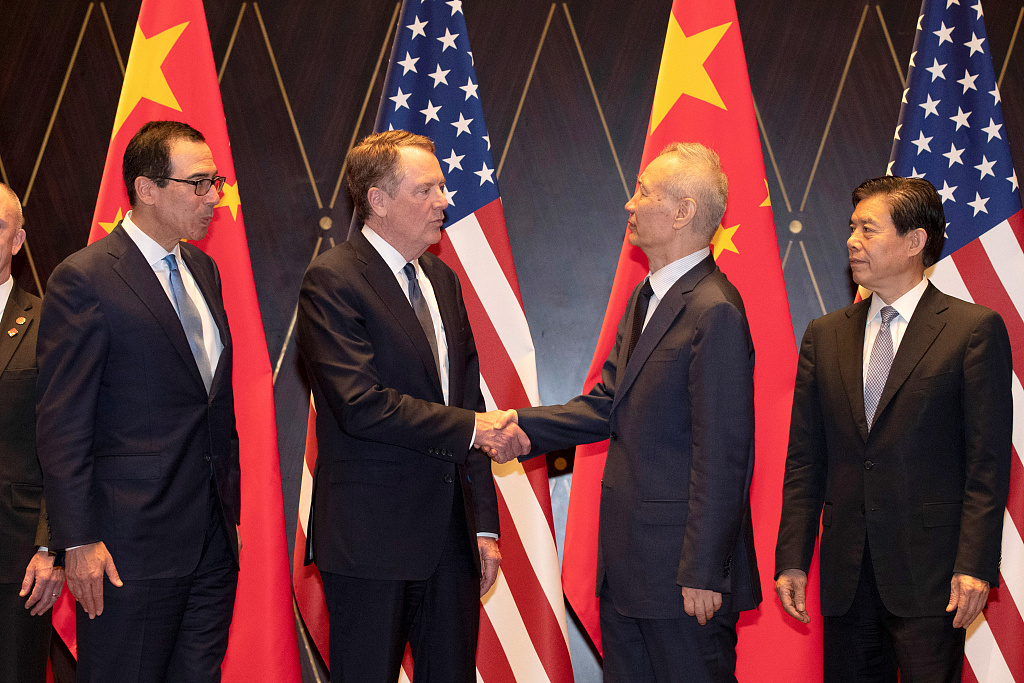

Editor's note: David Lee is a consultant and author based in Beijing who focuses on the energy, health, international politics and international development. The article reflects the author's opinions, and not necessarily the views of CGTN.
Former U.S. President and First Lady Barack and Michelle Obama released their first-ever movie "American Factory" on video streaming provider Netflix, documenting life at a Chinese-acquired factory in Ohio where about 2,000 blue-collars Americans are hired.
The documentary film was made by an American team which was granted free access to the car glass factory now owned by Chinese billionaire Mr. Cao Dewang. He is a household name in China who is known as both the product and an iconic symbol of maverick entrepreneurship over the past four decades.
American blue-collar workers had eagerly expected the opening of Mr. Cao's Fuyao factory to offer employment opportunities. Working at the Chinese-owned factory, Americans had to adapt to Chinese management-style, which was complained to be much stricter. Sometimes the tensions would rise higher, but many other times Chinese and American teams learned to work together, and Americans quipped about being the "foreigners" in the factory themselves.
While faithfully recording the clash of ways in both life and mind, American filmmakers would confess to media colleagues that "to their credit, as the pressure mounted, they did not kick us out."

A worker is displaying a piece of plastic in the Reading, Pennsylvania factory Quadrant, one of the few remaining manufacture industry in the area still providing stable jobs. /VCG Photo
As the relations between the world's two biggest economies evolve, more Chinese investments and operations will take place in the United States, particularly in the American South and Midwest. This openness to communication with American media and society at large is not limited to Mr. Cao alone. The consensus by Chinese entrepreneurs as well as pretty much all walks of life in China is to understand the United States better and, more importantly, to help Americans understand Chinese better.
Mrs. Obama reportedly said the film resonated with her because her father had done an "intense" job for decades just to provide for his family. Her feelings for the many American blue-collar workers are sure to resonate with many millions of ordinary Americans who have been purchasing household goods made in China and are just gradually getting more China exposure - buying more high-end instead of "cheap" Chinese products, having dealings with Chinese businesses, and even ending up being employed by a Chinese company.
At this point, when many Americans are taken aback, unnerved, and alarmed by shifting bilateral posturing, calm objectiveness is of the utmost importance when it comes to understanding China. To their credit, by acquiring and presenting the film to the American people, Barack and Michelle Obama are contributing to the calm and objective understanding of the second-largest economy and the most important bilateral relationship in today's world.
"American Factory" does not attempt to provide any judgment. It opens up a window for American people to see and appraise for themselves. Amid trade tensions and growing anti-immigrant, nationalistic rhetoric, this calmness, and objectivity to link up with American society are all the more worthy and valuable.

U.S. Trade Representative Robert Lighthizer (center left) shakes hands with Chinese Vice Premier Liu (center right), with U.S. Treasury Secretary Steven Mnuchin (left) and Chinese Commerce Minister Zhong Shan (right) present at the scene in Washington, DC, July 31, 2019. The meeting was hailed as constructive until U.S. President Donald Trump decided to unilaterally impose more sanctions on China. /VCG Photo
The same calmness and objectivity have been voiced by Neil Bush, son of former U.S. President George H.W. Bush and younger brother of former U.S. President George W. Bush. In an opinion piece authored by him last month, Neil Bush called on dropping the "paranoia" and embracing "the George H.W. Bush-style" in engaging with China.
More importantly, Neil Bush puts the bilateral relationship in the context of the globalization drive, which has impacted and is impacting both China and the United States in profound ways with the increasing economic and trade interdependence. Also, aside from the perspective of globalization affecting bilateral relations, "American Factory" provides a more intimate picture in a field that closely relates to the ordinary American people.
The Obamas and Neil Bush come from the Democratic Party and Republican Party. They seem to share the same view on the importance of understanding China better, as both countries are coping with globalization. Hopefully, this China consensus from both sides of the aisle may grow and prevail.
(If you want to contribute and have specific expertise, please contact us at opinions@cgtn.com.)

Copyright © 2018 CGTN. Beijing ICP prepared NO.16065310-3
Copyright © 2018 CGTN. Beijing ICP prepared NO.16065310-3